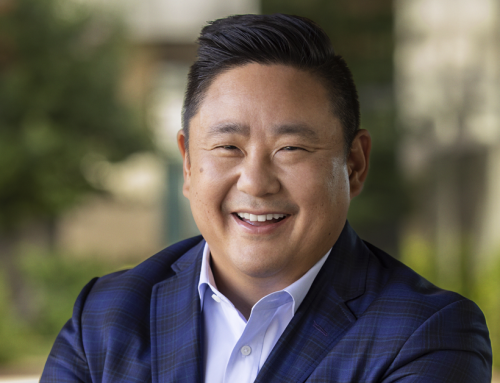Guest: Melinda Bremley, Ph.D, a Partner at Chapman & Co. Leadership Institute.
In a nutshell: Almost all effective leaders find a healthy balance between ego, confidence, and collaboration — both in themselves and in the talent they’re managing. But to stay in that high-performance zone, leaders need to have the emotional intelligence to relate to their people as people and the critical thinking skills to adapt to problems on the fly and keep their teams headed in the right direction.
On today’s show, Melinda Bremley and I discuss the traits that differentiate top leaders, including how to use assessments to identify and nurture high-potential team members and how to have tough conversations with your direct reports during performance reviews.
.Melinda Bremley and I discuss:
- The characteristics that separate executives who rise to the top of an organization.
- When and how to deploy emotional intelligence.
- Best practices for more effective and empowering performance reviews.
- Melinda’s multipronged approach to talent assessment, including how to choose the right profiling tools for the right job.
- Weighing culture fit relative to other performance attributes.
- Hiring superstars versus hiring team players.
- The role of ego in professional success.
- Why executive coaching has become increasingly popular.
. Quotes:
Melinda Bremley on two characteristics of high-performing senior leaders:
“As my work has evolved, I do tend to work more at the senior levels. So certainly one of the things that comes to mind is change agility. Can you flex, can you adjust, can you keep your cool in times when there’s so much going on around you that you’re able to stay focused? But also thinking about, what do we need to do next? How do we manage this? Is it the end of the world? Or what can I do about it? Those who are more successful tend to be very comfortable looking forward and saying, how do we handle this? What do we need to do instead of? Right now, I’m going to deal with where we need to go.
Another piece is something we call critical thinking ability, and this is very widely used in the assessment industry. It’s the concept of using logic and reasoning to make decisions versus experiences you can draw on. Your first job, you probably were given a playbook to learn. This is what we need you to do. Figure it out. And if you’re really quick to learn that, you look really good. That would be what we call problem solving ability. And you get promoted for learning that playbook, until a certain point in your career where you’ve got this new role, this new job, but they’re not giving you a playbook. This is when critical thinking comes into play, and this is when you can use logic and reasoning to anticipate what’s around the corner. Can I figure out what might happen next? Does it matter what I’ve done in the past? Does it matter what I want to happen next? Can I really be objective and just deal with the realities? And that’s what we found time and time again at the very top. Both of those components are very important, and they are hard to just will yourself to do better at.”
Melinda Bremley on clarifying roles before hiring:
“First, you step back and you have to say, what are the characteristics that we’re looking for in a role? We all think we know what this financial analyst role is or this advisor role is. We’re all aligned on this. You’re probably not. So step back first and have a discussion around what are we looking for? What are the experiences that we feel they must have? What would we maybe like for them to have? But let’s calibrate on that. And then also what are the characteristics that we’ve learned really do differentiate those who thrive and succeed versus those who flame out early. Have we learned some things over the past? Let’s talk about that with the appropriate parties in the room and just get that out on the table.”
Melinda Bremley on who financial service firms should be looking to hire:
“We want them to be service minded. We want them to care about their customers, their clients, and their performance. ‘I want to do well for them. This is important to me.’ They also have to be very tenacious. There are a lot of different things that they need to do every day, and they don’t hit the finish line every day. Often that finish line is way down the road. And there are people who are good at waiting for that to happen, who still stick with it and persevere. And others who are like, ‘I didn’t get rewarded. I’m out.’ So that type of focus is going to be important. Also, critical thinking comes into play with regard to not always just waiting to be told everything, but listening and thinking about what’s going on in the world around you. What’s important to your client base around you is important.”
Resources Related to This Episode
- Melinda Bremley on LinkedIn
- Would You Want “10 of That Type of Person on Staff?” If you’re debating whether to hire a particular candidate or to fire a placeholder, then ask yourself this simple question.





